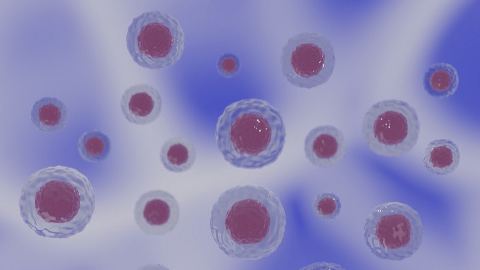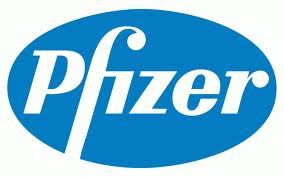预约演示
更新于:2025-05-07
L-sel
更新于:2025-05-07
基本信息
别名 CD62 antigen-like family member L、CD62L、gp90-MEL + [20] |
简介 Calcium-dependent lectin that mediates cell adhesion by binding to glycoproteins on neighboring cells (PubMed:12403782, PubMed:28011641, PubMed:28489325). Mediates the adherence of lymphocytes to endothelial cells of high endothelial venules in peripheral lymph nodes. Promotes initial tethering and rolling of leukocytes in endothelia (PubMed:12403782, PubMed:28011641). |
关联
6
项与 L-sel 相关的药物靶点 |
作用机制 L-sel抑制剂 |
在研机构- |
在研适应症- |
最高研发阶段终止 |
首次获批国家/地区- |
首次获批日期1800-01-20 |
作用机制 E-sel抑制剂 [+2] |
在研机构- |
在研适应症- |
最高研发阶段终止 |
首次获批国家/地区- |
首次获批日期1800-01-20 |
靶点 |
作用机制 L-sel抑制剂 |
在研机构- |
在研适应症- |
非在研适应症 |
最高研发阶段无进展 |
首次获批国家/地区- |
首次获批日期1800-01-20 |
6
项与 L-sel 相关的临床试验EUCTR2009-017257-35-DE
Multi-center, randomized, double-blind, placebo-controlled, cross-over Phase II study to evaluate the safety and efficacy of inhaled Bimosiamose for the treatment of patients with moderate to severe Chronic Obstructive Pulmonary Disease (COPD)
开始日期2010-02-25 |
EUCTR2009-013163-18-DE
A double-blind, placebo controlled, randomized, cross-over Phase IIa study to evaluate the effect of Bimosiamose on ozone induced sputum neutrophilia in healthy subjects.
开始日期2009-08-11 |
EUCTR2008-000197-20-DE
Multi-center, randomized, double-blind, placebo-controlled Phase 2 study to evaluate the safety and efficacy of Bimosiamose 5% Cream for the treatment of patients with chronic plaque type psoriasis - Psoriasis POC
开始日期2008-11-28 |
100 项与 L-sel 相关的临床结果
登录后查看更多信息
100 项与 L-sel 相关的转化医学
登录后查看更多信息
0 项与 L-sel 相关的专利(医药)
登录后查看更多信息
7,599
项与 L-sel 相关的文献(医药)2025-07-01·Journal of Neuroimmunology
Autoantigen and IL-2 activated CD4+CD25+T regulatory cells are induced to express CD8 and are autoantigen specific in inhibiting experimental autoimmune encephalomyelitis
Article
作者: Robinson, Catherine M ; Rakesh, Prateek ; Verma, Nirupama D ; Hall, Bruce M ; Tran, Giang T ; Hodgkinson, Suzanne J ; Bedi, Sukhandep ; Carter, Nicole ; Al-Atiyah, Ranje
2025-06-01·Clinica Chimica Acta
Data independent acquisition proteomics and machine learning reveals that proteins associated with immunity are potential molecular markers for early diagnosis of autism
Article
作者: Yan, Kang ; Cheng, Yuxia ; Gong, Xiaohui ; Wang, Tuanmei ; Hu, Erlin ; Zhaohui, Sun ; Ming, Zhu ; Zhou, Wenjuan ; Gan, Tuoyu ; Peng, Xiangwen ; Kuang, Xiaoni ; Ye, Chunhua ; Wang, Sifeng
2025-05-01·International Journal of Biological Macromolecules
Transcriptome profiling in an in vitro peripheral blood mononuclear cell – Mycobacterium tuberculosis infection model reveals breed-specific immune gene signatures potentially associated with tuberculosis susceptibility in cattle
Article
作者: Kumar, Rishi ; Sarkar, Uttam ; Gandham, Sripratyusha ; Dey, Bappaditya ; Maity, Hemant Kumar
73
项与 L-sel 相关的新闻(医药)2025-05-05
May 01, 2025 -- Lyell Immunopharma, Inc. (Nasdaq: LYEL), a clinical-stage company advancing a pipeline of next-generation CAR T-cell therapies for patients with cancer, today announced that an abstract highlighting new clinical data from the Phase 1/2 trial of LYL314 (formerly IMPT-314) in large B-cell lymphoma will be presented as an oral presentation at the International Conference on Malignant Lymphoma (ICML) 2025 taking place in Lugano, Switzerland June 17-21, 2025.
LYL314 is a dual-targeting CD19/CD20 chimeric antigen receptor (CAR) T-cell product candidate in development for patients with aggressive large B-cell lymphoma. LYL314 has received Regenerative Medicine Advanced Therapy and Fast Track designations from the U.S. Food and Drug Administration for the treatment of patients with relapsed and/or refractory diffuse large B-cell lymphoma in the 3rd or later line setting.
Details of the presentation are below:
LYL314, a CD19/CD20 CAR T-cell candidate enriched for CD62L+ stem-like cells, achieves high rates of durable complete responses in R/R large B-cell lymphoma
Session Name: Focus on New Cellular Therapies
Presentation Date & Time: June 18, 2025, 5:40 pm CEST (11:40 am ET)
Presenting Author: Akil Merchant, MD, Associate Professor and Co-Director of the Lymphoma Program at the Samuel Oschin Cancer Center, Cedars-Sinai Medical Center, Los Angeles, CA
Presentation Number: 106
Location: Room B
Lyell is a clinical-stage company advancing a pipeline of next-generation CAR T-cell therapies for patients with hematologic malignancies and solid tumors. To realize the potential of cell therapy for cancer, Lyell utilizes a suite of technologies to endow CAR T cells with attributes needed to drive durable tumor cytotoxicity and achieve consistent and long-lasting clinical responses, including the ability to resist exhaustion, maintain qualities of durable stemness and function in the hostile tumor microenvironment.
The content above comes from the network. if any infringement, please contact us to modify.

快速通道细胞疗法免疫疗法加速审批临床研究
2025-05-02
调节性 T 细胞(Tregs)的 30 个标记物在其识别、功能、分化成熟、抑制活性以及在多种疾病中的作用等方面都具有重要意义。FoxP3作为 Treg 谱系最关键的标记,是一种转录因子,对 Tregs 的分化、成熟及获得抑制功能起着核心作用。其基因发生突变会引发 IPEX 综合征,导致多器官自身免疫疾病。FoxP3 有多种异构体,全长变体(FL)的 Tregs 表现出更高的抑制活性和增殖率。Helios属于 Ikaros 基因转录因子家族,多数人和小鼠的 Tregs 会表达。虽其在人类 Treg 稳定性和功能的确切作用尚未完全明确,但可作为 Tregs 稳定性和纯度的监测标记,还可能与细胞激活和增殖相关。CD25即 IL-2 受体的 α 链,高表达是常规 Tregs 的显著特征之一。在 T 细胞增殖、激活诱导的细胞死亡以及 Tregs 和效应(Teff)T 细胞的功能中发挥重要作用,FoxP3 + Tregs 中 CD25 水平最高的亚群具有最强的免疫抑制活性。CD127是 IL-7 受体的 α 链,在 T 细胞的动态调节、淋巴细胞分化和细胞免疫方面有重要影响。稳态时,Tregs 表达低水平的 CD127,激活时其表达显著上调,可辅助更精准地识别 Tregs。CD39作为一种外切酶,在调节嘌呤能信号传递给免疫细胞的持续时间、强度和化学性质方面发挥关键作用。其在 Tregs 上的表达存在个体差异,在炎症部位表达较高。CD39 + Tregs 被认为具有高活性、强抑制性,能分泌 IL-10,且高表达 CD39 可维持更高水平的 FoxP3 表达。CTLA-4属于 CD28 免疫球蛋白超家族的抑制性受体,对 Treg 细胞功能至关重要。它调节 T 细胞的共刺激,持续表达,在免疫抑制活动期间高度表达,可定义具有强抑制活性的 Tregs。CTLA-4 通过与树突状细胞表面的共刺激分子 CD80/86 结合,阻止其与效应 T 细胞上的 CD28 相互作用,从而抑制 T 细胞激活,还能诱导树突状细胞表达吲哚胺 2,3 - 双加氧酶(IDO),调节免疫反应。GITR是 TNF 受体超家族成员,通过提供共刺激信号来调节免疫反应,影响 T 细胞的激活、分化、存活和记忆形成以及巨噬细胞极化。然而,其在 Tregs 中的作用存在争议,既能导致 Tregs 不稳定、细胞耗竭和抑制功能下降,又能诱导 Tregs 在体外增殖和扩增。TIGIT是具有免疫球蛋白和 ITIM 结构域的 T 细胞免疫受体,为跨膜糖蛋白受体。在 Tregs 激活后高表达,TIGIT + Tregs 相比 TIGIT - Tregs 具有更强的抑制作用,能特异性抑制促炎的 Th1 和 Th17 细胞反应,但不影响 Th2 细胞反应。此外,TIGIT 表达与 Treg 效应分子表达增加相关,如颗粒酶 B、IL-10 和纤维蛋白原样蛋白 2(Fg12)。CD120b(TNFR2)具有抗炎活性,对少突胶质细胞、心肌细胞和角质形成细胞有保护作用,通过影响不同类型免疫细胞来实现免疫抑制功能。在激活的 Tregs 上高度且持续表达,TNF-α 与 TNFR2 的相互作用对 Tregs 的激活、扩增和表型稳定至关重要,还能维持 FoxP3 启动子的去甲基化,支持 Tregs 的分化和稳定。LAP即潜伏期相关肽,是转化生长因子 -β(TGF-β)前体的氨基末端结构域,与 TGF-β 形成潜伏复合物,调节单核细胞募集。LAP + Tregs 在 Treg 特异性去甲基化区域(TSDR)高度去甲基化,在体内外均具有抑制作用。CCR6属于 C-C 趋化因子受体蛋白,在协调免疫细胞向炎症部位迁移、维持免疫稳态和免疫系统完整性平衡方面具有关键作用。在多种炎症性疾病中,CCR6 + Tregs 的比例较高。CD223(LAG-3)是一种免疫检查点受体蛋白,可抑制细胞增殖、免疫功能、细胞因子分泌和维持免疫稳态。在 Tregs 上持续表达,通过抑制促进 Tregs 在炎症部位维持的信号通路来限制其增殖和功能,但也能刺激 Treg 介导的抑制作用,还可与 CTLA-4 和 PD-1 协同增强 Tregs 的抑制活性。GARP(LRRC32)作为潜伏 TGF-β 的膜受体,调节膜结合潜伏 TGF-β 的可用性并调节其在 Tregs 和血小板上的激活。在激活的 Tregs 表面表达,是具有高抑制活性的人类 Tregs 的特异性标记。然而,GARP 与 FoxP3 的表达关系存在争议,有研究表明二者相互依赖,也有研究显示它们并非相互调节。GPA33是一种细胞表面抗原,与免疫失调相关。高表达 GPA33 可定义 CD4 + CD25 + CD127 – FoxP3 + Helios + Tregs,这类 Tregs 无法产生常规 T(Tconv)细胞效应细胞因子。CD137CD137 是 TNFR 家族的共刺激受体,可促进自然杀伤(NK)细胞增殖和细胞因子分泌。CD137 + CD154 −是抗原激活的 FoxP3 + Tregs 的标记,具有高效抑制效应 T(Teff)细胞增殖的能力,具体作用取决于免疫反应类型。Nrp-1即神经毡蛋白 - 1,参与轴突导向和血管生成。在小鼠 Tregs 中富集,在人类中表达较低。在诱导 Tregs(iTregs)表面表达 Nrp-1 可识别和分离出在炎症条件下具有卓越抑制功能的 iTreg 亚群,且在周围淋巴器官中的表达高于胸腺 Tregs。FR4是叶酸结合蛋白的异构体,在小鼠中表达,与人类 FR-δ 高度同源。FR4 过表达可增强 Tregs 在体外的增殖能力,在天然和外周 Tregs 中均有表达。CD103属于整合素 αE,通过与 E-cadherin 相互作用介导细胞粘附、迁移和淋巴细胞归巢。CD103 + Tregs 在炎症部位积累的能力增强,参与皮肤局部 Treg 功能,与 FoxP3 的高表达相关,可能增强 TGF-β 依赖的 FoxP3 表达。CD44作为细胞表面的透明质酸受体,参与细胞的运动、存活和粘附等多种过程。其配体高分子量透明质酸(HMW-HA)可促进 Treg 介导的抑制作用,且与 HMW-HA 共刺激可促进 FoxP3 的表达。CD62L即白细胞粘附分子 L - 选择素,是一种跨膜凝集素受体,可调节幼稚和中枢记忆 T 细胞进入淋巴结以及激活的 CD8 + T 细胞向病毒感染部位的迁移,使 Tregs 归巢到次级淋巴器官。CCR7参与将树突状细胞和 T 细胞定位到淋巴结,在诱导外周免疫耐受方面有重要作用,可使 Tregs 归巢到次级淋巴器官。nTregs 高表达 CCR7,而中央记忆 Tregs(cmTregs)和效应记忆 Tregs(emTregs)下调其表达。CD31(PECAM-1)是高度糖基化的 Ig 样膜受体,在免疫和血管系统中均具有粘附和信号传导功能,是 Treg 分化的标记。ICOS属于 CD28 超家族的同源二聚体蛋白,参与 Tregs 的产生、增殖和存活。在癌症中,Tregs 高表达 ICOS,其与 ICOSL 的信号通路对 Treg 介导的自身耐受至关重要。此外,一小部分 ICOS + Tregs 在正常人和小鼠的外周血中可产生 IFN-γ 和 IL-17。Gal-1即半乳糖凝集素 - 1,参与细胞生长、迁移、炎症、血管生成等多种过程,在肿瘤进展、免疫逃逸和免疫耐受中发挥作用。其对 Treg 细胞的作用具有环境依赖性,阻断 Gal-1 会显著削弱 Tregs 的抑制作用。PD-1(CD279)属于 I 型跨膜蛋白,是免疫球蛋白超家族成员。PD-1 可调节 Treg 的生成及其免疫抑制特性,在癌症中,其阻断对 Tregs 的影响存在争议,既可能降低 Treg 介导的抑制作用,也可能增强 Treg 功能;在自身免疫疾病中,PD-1 在 Tregs 上的表达与疾病相关,如在系统性红斑狼疮中,PD-1 + 滤泡调节性 T 细胞功能受损。CCR7参与免疫细胞向淋巴结的定位和外周免疫耐受的诱导,对 Tregs 归巢到次级淋巴器官具有重要意义,其表达水平在 Tregs 的不同分化阶段有所变化。Granzyme B(GZMB)在结直肠癌中,表达升高,介导肿瘤免疫,参与 Tregs 对肿瘤细胞的抑制作用,是评估肿瘤免疫状态的重要指标之一。TIM-3在多种癌症(如结肠癌、黑色素瘤)中标记肿瘤内 Tregs,其表达与 Tregs 的抑制功能增强和肿瘤生长促进相关;在类风湿关节炎中,TIM-3 表达降低与 Tregs 功能活性下降有关;在移植物抗宿主病(GvHD)中,TIM-3 表达升高与 Tregs 功能活性增加相关。LAG-3 在结直肠癌中,LAG-3 + TIM-3 Tregs 表达更高水平的 TGF-β、IL-10 和 CTLA-4,具有更强的抑制功能,参与肿瘤免疫逃逸和疾病进展的调节。 CD45RA/RO属于受体蛋白酪氨酸磷酸酶,在 T 细胞受体信号起始中发挥作用,是 Tregs 分化状态的标记。初始 Tregs(nTregs)表达 CD45RA,记忆 Tregs 通常表达 CD45RO。参考资料Gootjes, C.; Zwaginga, J.J.; Roep, B.O.; Nikolic, T. Defining HumanRegulatory T Cells beyond FOXP3: The Need to Combine Phenotype with Function. Cells 2024, 13, 941. https://doi-org.libproxy1.nus.edu.sg/10.3390/ cells1311094Santosh Nirmala S, Kayani K, Gliwin ´ski M, Hu Y, Iwaszkiewicz-Grzes ´ D, Piotrowska-Mieczkowska M, Sakowska J, Tomaszewicz M, Marı ´n Morales JM, Lakshmi K, Marek-Trzonkowska NM, Trzonkowski P, Oo YH and Fuchs A (2024) Beyond FOXP3: a 20-year journey unravelling human regulatory T-cell heterogeneity. Front. Immunol. 14:1321228. doi: 10.3389/fimmu.2023.1321228Sayitoglu EC, Freeborn RA and Roncarolo MG (2021) The Yin and Yang of Type 1 Regulatory T Cells: From Discovery to Clinical Application. Front. Immunol. 12:693105. doi: 10.3389/fimmu.2021.693105
免疫疗法细胞疗法
2025-04-23
·医药速览
许多患者在CAR T细胞治疗后复发,原因是癌细胞表达的相关抗原低于CAR T细胞有效反应所需的阈值,即使同时靶向不同抗原的CAR T细胞试验也出现了类似的复发情况,如靶向CD19和CD22。需要开发更有效的CAR T细胞疗法,以提高对抗原低表达细胞的敏感性和持久性。3月10日,科罗拉多大学在《Cancer Cell》期刊上发表了一篇文章,研究开发了一种新的ALA-CAR-T,通过恢复LAT活性,增强了CAR-T细胞的抗原敏感性、疗效和持久性,从而克服了CAR-T细胞治疗后复发的多种机制。在体外和体内均表现出更强的细胞毒性、增殖能力和抗肿瘤活性,有望改善CAR-T细胞疗法的长期疗效,并拓展其在实体肿瘤等领域的应用。CD22抗原低表达的癌细胞通过削弱CAR T细胞远端信号传导逃避免疫攻击。尽管CD22BBz CAR T细胞对CD22-low(22Low)和野生型(WT)NALM6细胞的体外杀伤能力无显著差异,但在小鼠模型中无法有效控制22Low-NALM6的生长,与T细胞体内扩增能力显著下降相关。蛋白质组学分析显示,22Low-NALM6刺激导致CAR T细胞中与细胞骨架重组(如ACTN1、TLN1)和MAPK信号通路(如MAPK1、MAPK3)相关的磷酸化位点显著减少。这种信号抑制可能源于CAR受体在低抗原密度下无法有效聚集,导致T细胞免疫突触形成障碍,进而影响远端信号传导的持续性和强度,最终削弱CAR T细胞的体内持久性和抗白血病活性。低抗原刺激导致CAR T细胞中ERK/MAPK信号通路激活不足。与野生型NALM6刺激相比,CD22-low NALM6(22Low-NALM6)刺激的CAR-Jurkat细胞中磷酸化ERK(pERK)水平显著降低,这一现象在健康供体来源的CD4+和CD8+ CAR T细胞中一致出现。低抗原刺激通过抑制LAT磷酸化阻断下游信号传导。近端信号分析显示,ZAP70激活位点Y319的磷酸化仅轻微下降,可能与CAR的scFv结构域自二聚化引发的抗原非依赖性激活有关。健康供体来源的CAR T细胞在低抗原刺激下同样表现为LAT-Y226和PLCγ-Y783磷酸化减弱,但ZAP70-Y319磷酸化无显著变化。双靶向ALA-CART平台通过强制激活LAT信号逆转低抗原刺激下的功能缺陷。设计了双顺反子载体22x19ALA-CART,共表达CD22BBz CAR和含LAT胞内域的CD19靶向辅助CAR。该设计使22x19ALA-CART在受到WT或22Low-NALM6刺激时,LAT-CAR的磷酸化水平显著高于传统CD22BBz CAR,进而增强下游PLCγ的磷酸化,通过补偿LAT信号缺陷克服了抗原密度限制。ALA-CART在体内完全清除CD22-low白血病并依赖CD4+ T细胞扩增。在NSG小鼠模型中,传统CD22BBz CAR T细胞对22Low-NALM6的控制效果有限,而22x19ALA-CART实现白血病完全清除并显著延长生存期。进一步分析显示,22x19ALA-CART的疗效与骨髓中CD4+ T细胞在第7天和第15天的显著扩增相关。双CAR结构在ALA-CART平台中独立且叠加发挥抗白血病作用。当靶细胞仅表达CD22(CD22+)或CD19(CD19+)时,22x19ALA-CART分别通过CD22BBz CAR或19LAT-CAR单独激活即可有效杀伤,且两种CAR独立激活时均能诱导IL-2和IFNγ分泌。在低剂量治疗实验中,22x19ALA-CART不仅完全清除野生型NALM6,还能根除仅表达CD22或CD19的白血病细胞,表明两种CAR独立激活即可实现治疗效果,且未观察到CAR激活模式对T细胞持久性的影响。CD22靶向ALA-CART通过优化scFv组合与信号强化实现低抗原白血病清除。将ALA-CART平台改造为单一靶向CD22的22ALA-CART,其体外杀伤能力显著增强,并在小鼠模型中完全清除22Low-NALM6,而传统CD22BBz CAR T细胞治疗组白血病持续进展。进一步验证显示,仅完整包含LAT信号域的22ALA-CART能清除低抗原白血病,而高亲和力CD22BBz或缺失LAT域的22Null CAR均无效。ALA-CART平台具有广谱抗原适用性并显著提升低抗原阈值下的疗效。在患者来源的B-ALL异种移植模型(PDX)中,当CD22密度低于1,500分子/细胞时,传统CD22BBz CAR T细胞治疗组外周血仍可检测到白血病细胞,而22ALA-CART实现完全清除,且脾脏肿瘤负荷显著降低。此外,研究扩展至CD19靶向的19ALA-CART,其对CD19-low NALM6的体外杀伤能力增强,并在体内显著延长小鼠生存期。这些结果表明,ALA-CART通过强制激活LAT信号,可在不依赖抗原密度的情况下提升CAR T细胞敏感性,为单靶点低抗原逃逸提供了通用解决方案。ALA-CART细胞增强的体内疗效未伴随毒性增加。在高负荷白血病小鼠模型中,22ALA-CART对野生型NALM6的清除速度显著快于传统CD22BBz CAR T细胞,但两组小鼠体重下降程度无显著差异。22ALA-CART组小鼠TNFα水平升高,而CD22BBz组IL-2水平较高,但与细胞因子释放综合征(CRS)密切相关的IL-6水平在两组间无显著差异。ALA-CART的体内扩增能力依赖于LAT-CAR,而效应功能由第二代CAR主导。通过拆分双CAR结构发现,单独表达22BBz-HA CAR的T细胞在应对22Low-NALM6时扩增能力显著受限,而LAT-CAR的共表达通过促进T干细胞记忆(TSCM)和中央记忆(TCM)表型的形成,显著提升ALA-CART的体内持久性。双CAR协同实现增殖与效应功能的平衡以应对抗原异质性。体外实验表明,22BBz-HA CAR单独可介导对WT-NALM6的杀伤,但对22Low-NALM6的清除需依赖LAT-CAR的协同作用。LAT-CAR通过增强T细胞增殖支持效应分子(如颗粒酶A/B)的分泌,而22BBz-HA CAR则负责直接触发细胞毒性功能。这种功能互补机制使ALA-CART在提升疗效的同时维持安全性,为克服抗原逃逸提供了动态调控策略。ALA-CART平台通过转录组重编程维持T细胞未分化状态。转录组显示,未受刺激的22ALA-CART细胞呈现初始T细胞特征,而传统CD22BBz CAR T细胞富集效应分化和干扰素应答通路。22ALA-CART中与长寿命T细胞相关的基因(如SELL、CD27、IL7RA)表达显著上调,表型分析证实其T干细胞记忆(TSCM)比例高达53%,远高于CD22BBz组的13.4%,同时效应记忆(TEM)和中央记忆(TCM)亚群比例显著降低。LAT-CAR在制造阶段抑制分化,但体内疗效需双CAR协同。体外重复刺激实验显示,22LAT-CAR单独可维持较低CD39表达和较高增殖能力,但其TOX和TCF1表达水平介于22ALA-CART与22BBz-HA之间。过表达野生型LAT(LAT-OE)虽能模拟22ALA-CART的TSCM优势表型和体外杀伤能力,却无法在体内清除CD22-low白血病。这表明,ALA-CART的体内疗效不仅依赖LAT-CAR对分化的抑制,还需第二代CAR在遭遇肿瘤时的主动信号协同。ALA-CART细胞通过维持中央记忆表型显著提升体内持久性。在清除野生型NALM6白血病的小鼠模型中,22ALA-CART的CD4+ T细胞在骨髓中持续存在长达35天,且中央记忆T细胞(TCM)比例显著高于传统CD22BBz CAR T细胞。双靶向22x19ALA-CART的CD4+亚群也富集TCM表型,且持久性与CD39低表达相关。LAT-CAR通过抑制终末分化维持T细胞持久性。拆分双CAR结构发现,单独表达22LAT-CAR或完整22ALA-CART的T细胞在清除白血病后持久性显著优于仅表达22BBz-HA CAR的T细胞,这与其更高的TSCM比例和更低的TEMRA分化相关。此外,22BBz-HA CAR持久性差的T细胞高表达耗竭标志物KLRG1,而LAT-CAR通过抑制效应分化程序,维持T细胞的长期存活能力。CD4+ ALA-CART亚群主导持久性与效应功能的平衡。无论抗原密度如何,CD4+ 22ALA-CART细胞在体内扩增优势显著,其TCM比例更高,IL7RA表达上调,并富集多功能性T细胞。CD4+细胞在低抗原刺激下虽减少细胞因子分泌,但其持续增殖能力和效应功能足以清除白血病,揭示了ALA-CART通过CD4+主导的持久性与CD8+效应功能的协同实现长期疾病控制。总之,这种新型ALA-CART通过恢复LAT活性,提高CAR T细胞对低抗原急性淋巴细胞白血病(ALL)细胞的敏感性和持久性,从而克服了传统CAR T细胞疗法在治疗抗原低表达癌症细胞时面临的挑战,这种新型的设计应该对实体瘤同样有效。推文用于传递知识,如因版权等有疑问,请于本文刊发30日内联系医药速览。原创内容未经授权,禁止转载至其他平台。有问题可发邮件至yong_wang@pku.edu.cn获取更多信息。©2021 医药速览 保留所有权利往期链接“小小疫苗”养成记 | 医药公司管线盘点 人人学懂免疫学| 人人学懂免疫学(语音版)综述文章解读 | 文献略读 | 医学科普|医药前沿笔记PROTAC技术| 抗体药物| 抗体药物偶联-ADC核酸疫苗 | CAR技术| 化学生物学温馨提示医药速览公众号目前已经有近12个交流群(好学,有趣且奔波于医药圈人才聚集于此)。进群加作者微信(yiyaoxueshu666)或者扫描公众号二维码添加作者,备注“姓名/昵称-企业/高校-具体研究领域/专业”,此群仅为科研交流群,非诚勿扰。简单操作即可星标⭐️医药速览,第一时间收到我们的推送①点击标题下方“医药速览” ②至右上角“...” ③点击“设为星标
细胞疗法免疫疗法
分析
对领域进行一次全面的分析。
登录
或

生物医药百科问答
全新生物医药AI Agent 覆盖科研全链路,让突破性发现快人一步
立即开始免费试用!
智慧芽新药情报库是智慧芽专为生命科学人士构建的基于AI的创新药情报平台,助您全方位提升您的研发与决策效率。
立即开始数据试用!
智慧芽新药库数据也通过智慧芽数据服务平台,以API或者数据包形式对外开放,助您更加充分利用智慧芽新药情报信息。
生物序列数据库
生物药研发创新
免费使用
化学结构数据库
小分子化药研发创新
免费使用

